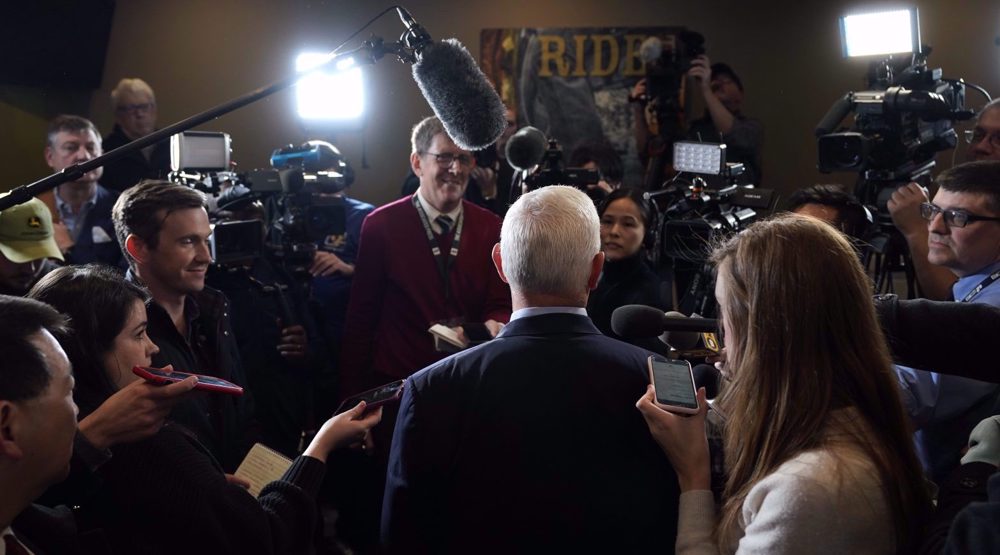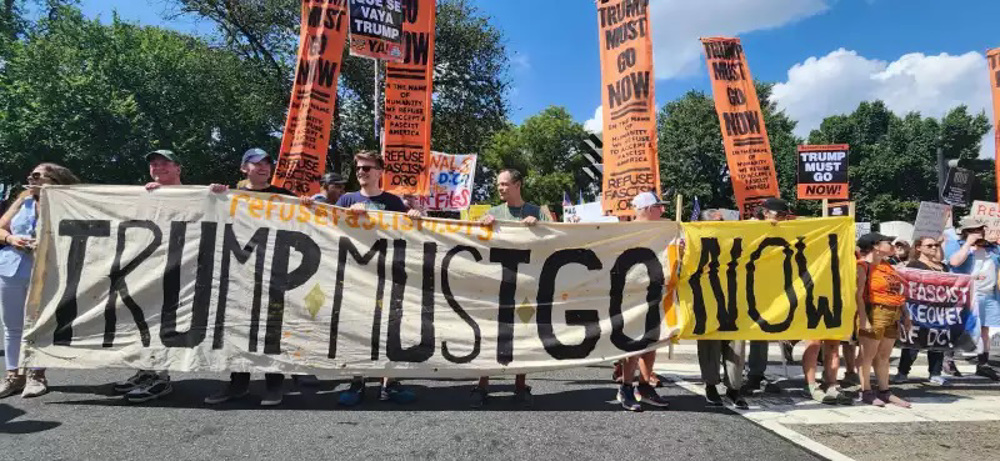Americans slam US news media for dividing country, peddling misinformation: Poll
Americans believe the country's news media is aggravating political polarization in the US, with nearly half of US adults saying they have little or no trust in the media's ability to report the news fairly and accurately, a new poll reveals.
Concern about the threat posed by misinformation unites Americans of both dominant political parties, with nearly 9 in 10 US adults pointing to misinformation as the key problem, according to the latest survey conducted by The Associated Press-NORC Center for Public Affairs Research and Robert F. Kennedy Human Rights advocacy organization.
A third of American adults state that they see news stories with false claims from politicians or misleading headlines every day, according to the poll, whose results were released just before the so-called World Press Freedom Day on Wednesday.
It further shows that Americans have significant concerns about misinformation — and the role played by media conglomerates closely tied to the US establishment along with politicians and major social media companies in spreading it.
Social media plays a key role, the survey shows, with nearly two-thirds of respondents pointing out that when they see a news story on social media, they expect it to be inaccurate. Those who stated they rely on social media regularly for their news were somewhat more likely to trust it than others.
Overall, nearly 6 in 10 participants further insisted that the news media bears blame for the spread of misinformation, and a similar percentage also said it has a large amount of responsibility for addressing it.
Majorities also believe others -- including social media companies and politicians -- share in the responsibility both for the spread of misinformation and for blocking it from dissemination.
Four in 10 respondents further said the press is doing more to harm American democracy, while only about 2 in 10 stated the press is doing more to protect it. An additional 4 in 10 say neither applies.
The survey confirms the growing belief around the globe that quite contrarily to their oft-repeated claims, Western media are closely tied to their respective governments and their allies, and largely fabricate news stories to serve their political and economic aims and interests in different regions of the world.
For instance, the Western media played a key role in waging a massive propaganda campaign in support of largely foreign-sponsored, separatist dissidents and terrorist groups aiming to generate chaos and anarchy across Iran under the false pretext of woman's rights.
The mainstream US media, particularly, engaged in citing totally unknown, foreign-based individuals -- commonly identified as " Iranian human rights activists" -- to describe incredible stories about what is taking place inside Iran.
That breakdown in trust may prompt many Americans to reject the mainstream news media, often in favor of social media and unreliable websites that spread misleading claims and that can become partisan echo chambers, leading to further polarization.
While a slim majority of Americans say they have some degree of confidence in the news media’s ability to report the news fair and square, only 16 percent state they are very confident. Forty-five percent, however, say they have little to no confidence at all.
The survey also reveals the complicated relationship many Americans have with the media: A majority rate in-depth investigative reporting as very helpful or extremely helpful for understanding the issues they care about, but they are more likely to say they regularly scan the headlines than read an in-depth investigative article.
Republicans view the news media less favorably than Democrats, with 61 percent of Republicans saying the news media is hurting democracy, compared with 23 percent of Democrats and 36 percent of independents who don’t lean toward either party.
Majorities across party lines say the news media fuels political division, but Republicans are much more likely than Democrats to say that’s happening a lot. More Republicans also believe the news is strongly influenced by the US government and the political views of journalists.
Research has shown that fragmentation of the media ecosystem, driven largely by the internet, has contributed to polarization, according to the report.
It further cites "experts" as noting that America’s heightened political divisions have a number of causes — gerrymandering (re-redistricting aimed at winning more votes) that reduces political competition, for example, or politicians who stoke fear and distrust — but media fragmentation and misinformation are making a clear impact, too.
According to the report, the poll of 1,002 adults was conducted March 30-April 3 using a sample drawn from NORC’s probability-based AmeriSpeak Panel, which is designed to be representative of the US population.
Iran condemns US maritime blockade on Venezuela as ‘state piracy’
VIDEO | Press TV's news headlines
‘Aggressive, hostile’: Canadian lawmakers slam Israel after being barred from West Bank
Pro-Palestinian hacker group breaches phone of former Israeli PM Bennett
VIDEO | Sana’a university protest condemns Qur’an desecration in texas
Israeli soldier takes own life at military base as Gaza war trauma deepens
Doctors in England begin 5-day strike over pay standoff amid flu surge
VIDEO | Austria keeps activist in jail for pro-Palestine slogan










 This makes it easy to access the Press TV website
This makes it easy to access the Press TV website